In this article, we’ll be discussing 9 herbs that you can grow in a glass of water. These herbs have a variety of uses, from adding flavor to your food to providing health benefits. Whether you’re a beginner gardener or an experienced one, these herbs are easy to grow and care for. So, let’s get started!
[1] Thyme
It is native to the Mediterranean region and has been used in cooking for centuries. Thyme is a perennial herb that is part of the mint family. Thyme is a versatile herb that can be used in a variety of dishes, from soups and stews to roasted meats and vegetables.
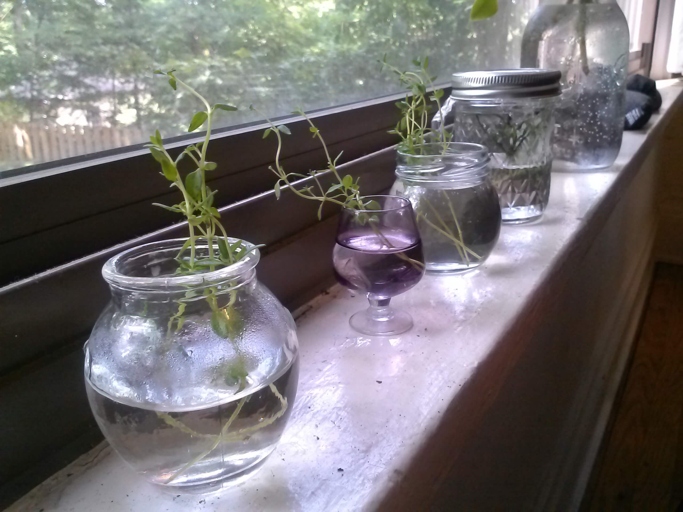
Change the water every few days, and in a few weeks you will have a healthy thyme plant. Thyme is relatively easy to grow, and can even be grown in a glass of water. Simply place a sprig of thyme in a glass of water and place it in a sunny spot.
Give it a try and see how it can enhance the taste of your favorite dishes. If you are looking for a herb that will add a bit of flavor to your cooking, thyme is a great option.
[2] Mint
Mint is a versatile herb that can be used in sweet or savory dishes. It’s easy to grow in a glass of water, and it’s a great way to add flavor to your cooking.
Mint is native to Europe, Asia, and Africa, and it has been cultivated for centuries. Mint is a member of the Lamiaceae family, which includes other herbs like basil, oregano, and rosemary.
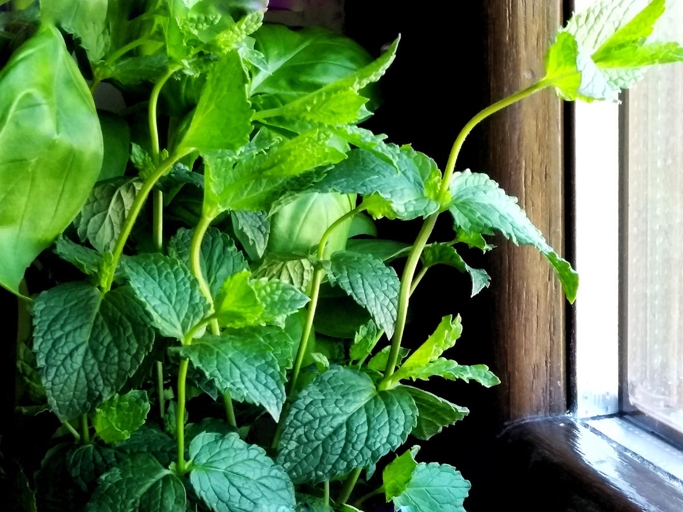
Mint is a hardy plant that can tolerate a wide range of conditions. Mint can tolerate drought and poor soil, but it prefers moist, well-drained soil. It prefers full sun, but it will also grow in partial shade.
Mint is a fast-growing plant, and it can quickly become invasive if it’s not kept in check. When growing mint in a glass of water, be sure to change the water every week and trim the mint leaves regularly.
[3] Oregano
It is native to the Mediterranean region and has been used in cooking for centuries. The leaves of the oregano plant are what are used in cooking, and they have a strong, pungent flavor. Oregano is a perennial herb that is part of the mint family.
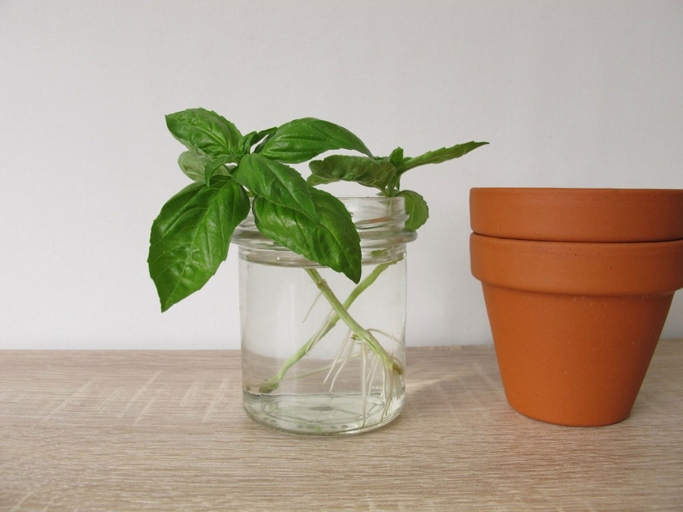
Oregano is a versatile herb that can be used in a variety of dishes. It is commonly used in Italian and Greek cuisine, and can be used to flavor meats, vegetables, soups, and stews. Oregano can also be used to make a variety of herbal teas.
Once the plant has grown to a desired size, the leaves can be harvested and used fresh or dried. The oregano plant is relatively easy to care for and does not require much attention. To grow oregano, simply place a sprig of the herb in a glass of water and place it in a sunny spot.
[4] Marjoram
Simply place a sprig of marjoram in a glass of water and change the water every few days. Marjoram can be grown in a glass of water on your windowsill. It has a sweet, slightly minty flavor that is often used in Mediterranean cuisine. Marjoram is a perennial herb that is closely related to oregano. Within a few weeks, you will have a healthy plant that you can harvest for cooking.
[5] Basil
To get started, fill a glass with fresh water and add a few basil seeds. Place the glass in a sunny spot and wait for the seeds to germinate. Allow the basil plant to grow for a few weeks before harvesting the leaves. Basil is a popular herb that can be easily grown in a glass of water. Once the seedlings have sprouted, thin them out so that only the strongest plant remains.
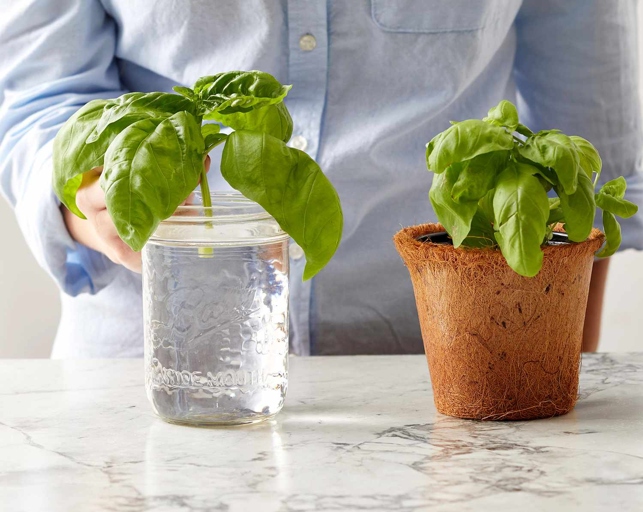
Basil is a versatile herb that can be used in a variety of dishes. The leaves can be added to salads, soups, and pasta dishes. When growing basil, be sure to keep an eye on the plant as it can become overgrown quickly. Basil can also be used to make pesto or infused oils. Regular pruning will help to keep the plant under control.
[6] Rosemary
Rosemary is a perennial herb that is native to the Mediterranean. It is a member of the mint family and has a strong, pungent aroma. It is also used in herbal medicine. Rosemary is used as a spice in many cuisines, including Italian, French, and Spanish.
Place the glass in a sunny spot and change the water every few days. Fill a glass with fresh water and add a sprig of rosemary. When the roots are several inches long, you can transplant the rosemary to a pot of soil. Rosemary can be grown in a glass of water. After a few weeks, you will see roots growing in the water.
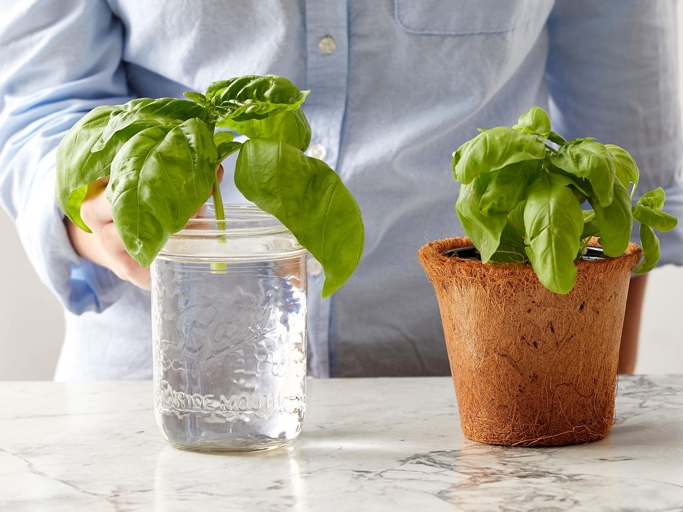
Rosemary is a hardy herb that can tolerate some neglect. It does not need to be fertilized or watered frequently. When pruning, be sure to cut back the stems to just above where new growth is emerging. However, it does benefit from occasional pruning.
[7] Sage
Sage is also used as a topical treatment for wounds and burns. The leaves of the sage plant are used to make a tea that is said to be helpful in treating colds, flu, and other respiratory infections. Sage is an herb that has a long history of being used for medicinal purposes.
The herb grows best in full sun and well-drained soil. Sage can be propagated from cuttings or seeds. Sage is a member of the mint family and is native to the Mediterranean region.
Dip the cutting in rooting hormone and plant it in a pot of moistened potting mix. To grow sage from a cutting, take a 4-inch cutting from a healthy sage plant and remove the lower leaves. Place the pot in a warm, sunny location and keep the soil moist. The cutting should root within 4-6 weeks.
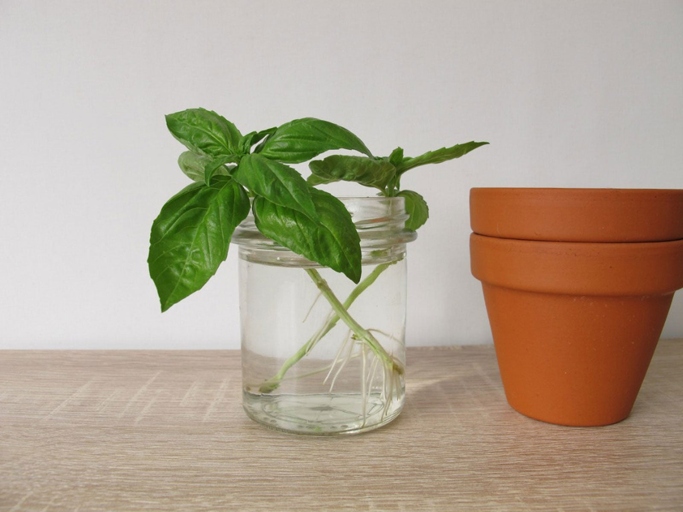
Once the seedlings are large enough to handle, transplant them into individual pots. To grow sage from seed, sow the seeds in a pot of moistened potting mix. Place the pot in a warm, sunny location and keep the soil moist. The seeds should germinate within 2-3 weeks.
[8] Melissa
This herb is easy to grow and can be done so in a glass of water. All you need is a little sunlight and you’re on your way to growing your own Melissa. Melissa is a great option for those who want to add a little flavor to their dishes. If you’re looking for a little spice in your life, why not try growing your own herbs?
[9] Lavender
Lavender (Lavandula angustifolia) is a fragrant, perennial herb native to the Mediterranean. The flowers and leaves are used to make teas, oils, and sachets. Lavender is thought to have calming properties and is used to treat anxiety, insomnia, and headaches.
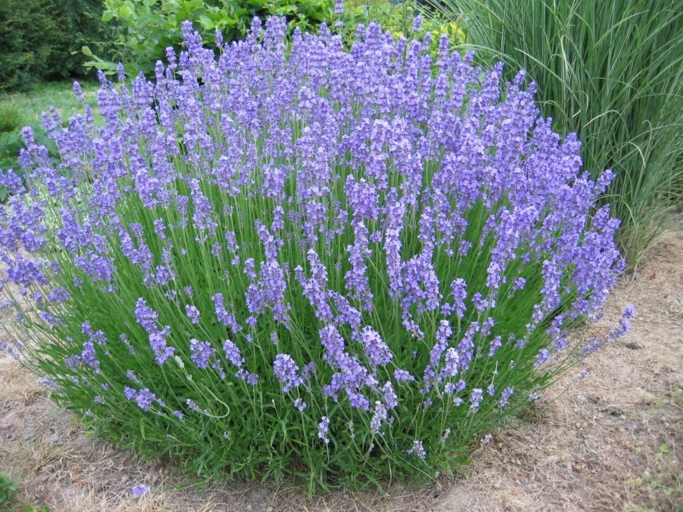
Add a few drops of lavender essential oil to the water. To grow lavender in a glass of water, start with a clean, empty jar. Fill the jar with fresh, room-temperature water. When the water has evaporated, add more water and oil as needed. Place a sprig of lavender in the water. Place the jar in a sunny spot and allow the water to evaporate.
Frequently Asked Questions
1. What are 9 spicy herbs you can grow in a glass of water?
2. How do you grow these herbs in a glass of water?
3. What are the benefits of growing these herbs in a glass of water?
4. How often do you need to change the water in the glass?
5. What are some tips for growing these herbs in a glass of water?
1. What are 9 spicy herbs you can grow in a glass of water?
The 9 herbs that can be grown in a glass of water are: basil, cilantro, chives, mint, oregano, parsley, rosemary, thyme, and tarragon.
2. How do you grow these herbs in a glass of water?
To grow these herbs in a glass of water, you will need to place the herb cutting in the water and then place the glass in a sunny spot. Change the water every few days and within a week or two, you should see roots growing.
3. What are the benefits of growing these herbs in a glass of water?
The benefits of growing these herbs in a glass of water are that they are easy to grow and care for, and they do not require a lot of space. These herbs can also be grown indoors, making them a great option for those who do not have a lot of outdoor space.
4. How often do you need to change the water in the glass?
You will need to change the water in the glass every few days.
5. What are some tips for growing these herbs in a glass of water?
Some tips for growing these herbs in a glass of water include: using a sharp knife or scissors to take your herb cuttings, making sure the glass is in a sunny spot, and changing the water every few days.
Final thoughts
If you’re looking to add a little spice to your life, try growing some of these herbs in a glass of water. With just a little bit of care, you can have fresh herbs to add to your cooking all year long.
